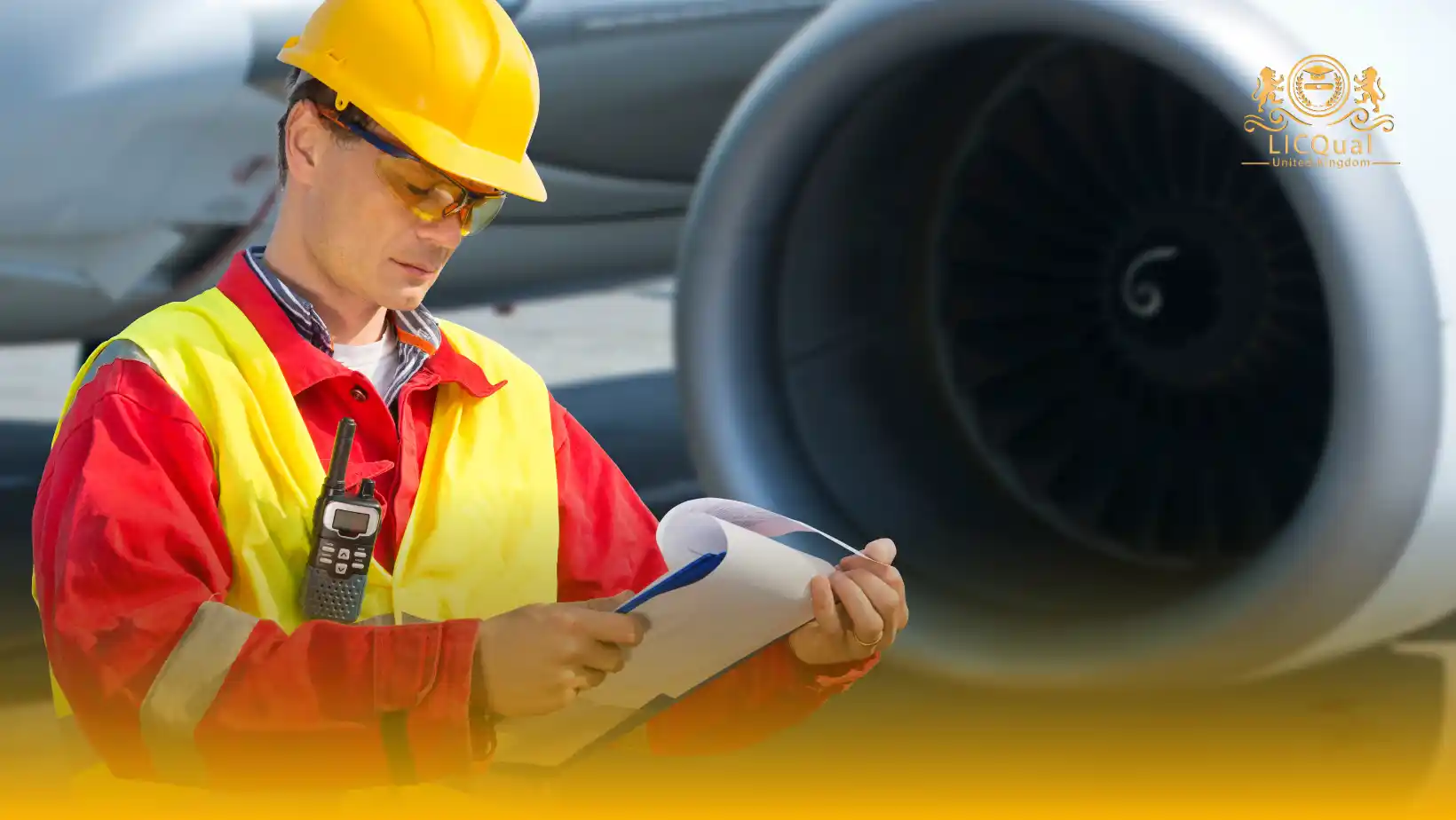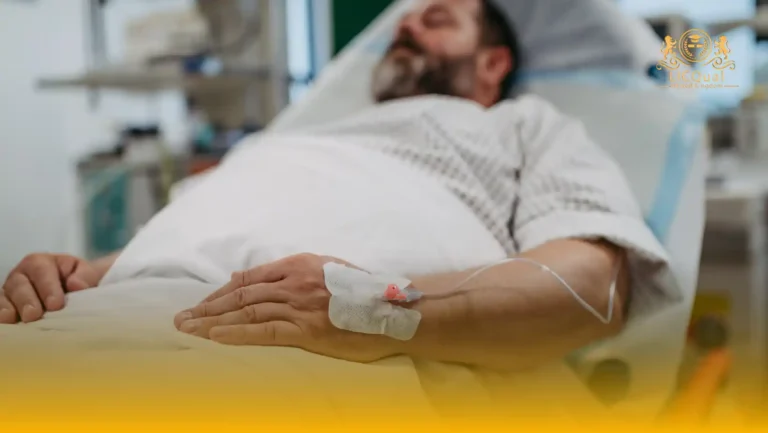The aviation industry is built on one core principle: safety. With global air travel expanding and regulations becoming more complex, there is a growing demand for professionals who can manage safety systems, ensure compliance, and lead with confidence. The LICQual UK Level 6 Diploma in Aviation Safety and Regulatory Compliance is a UK‑accredited, internationally recognized qualification designed for ambitious learners and professionals who want to advance into senior roles in aviation safety, compliance, and regulatory management.
This advanced diploma goes beyond the basics of aviation safety. Learners will explore strategic safety management, global aviation regulations, risk assessment, and compliance frameworks aligned with ICAO, EASA, and FAA standards. The program also emphasizes aviation law, ethics, crisis management, and accident investigation, ensuring graduates are equipped with the knowledge and leadership skills required to meet international aviation safety standards.
One of the key strengths of the Level 6 Aviation Safety and Regulatory Compliance Diploma UK is its balance between academic depth and practical application. You will not only study advanced safety management systems (SMS) but also learn how to apply them in real‑world airline, airport, and regulatory environments. The course also integrates modern topics such as sustainability, digital transformation, and global risk management, making it highly relevant to today’s aviation sector.
This qualification is ideal for aviation professionals, airline staff, compliance officers, and international students seeking a globally recognized UK diploma. With flexible study options, including online delivery, it is accessible to learners worldwide who want to balance professional development with career growth.
Graduates of the LICQual UK Level 6 Diploma in Aviation Safety and Regulatory Compliance are well‑positioned for senior roles such as aviation safety manager, compliance director, regulatory consultant, or risk management specialist. Many also progress to postgraduate studies or advanced professional certifications, further strengthening their career prospects in the global aviation industry.
If you are ready to take your aviation career to the next level, this diploma provides the knowledge, credibility, and international recognition to succeed in one of the most safety‑critical industries in the world.
Course Overview
Qualification Title
LICQual UK Level 6 Diploma in Aviation Safety and Regulatory Compliance
Total Units
6
Total Credits
120
GLH
480
Qualification #
LICQ2201266
Qualification Specification
To enroll in the LICQual UK Level 6 Diploma in Aviation Safety and Regulatory Compliance, applicants must meet the following criteria:
|
Qualification# |
Unit Title |
Credits |
GLH |
|---|---|---|---|
|
LICQ2201266-1 |
Strategic Aviation Safety and Risk Management |
20 |
80 |
|
LICQ2201266-2 |
Global Aviation Regulatory Frameworks and Compliance |
20 |
80 |
|
LICQ2201266-3 |
Advanced Safety Management Systems (SMS) and Quality Assurance |
20 |
80 |
|
LICQ2201266-4 |
Aviation Law, Ethics, and International Standards |
20 |
80 |
|
LICQ2201266-5 |
Crisis Management, Accident Investigation, and Safety Audits |
20 |
80 |
|
LICQ2201266-6 |
Research Project in Aviation Safety and Regulatory Compliance |
20 |
80 |
By the end of this course, learners will be able to:
1. Strategic Aviation Safety and Risk Management
By the end of this unit, learners will be able to:
- Evaluate advanced strategies for managing aviation safety across global operations.
- Apply risk management frameworks to identify, assess, and mitigate aviation hazards.
- Develop safety policies that align with ICAO and EASA international standards.
- Analyze case studies of aviation incidents to propose strategic safety improvements.
- Demonstrate leadership in promoting a proactive safety culture within organizations.
- Integrate risk management principles into long‑term aviation safety planning.
2. Global Aviation Regulatory Frameworks and Compliance
By the end of this unit, learners will be able to:
- Explain the role of ICAO, EASA, and FAA in shaping international aviation regulations.
- Compare and contrast global regulatory frameworks and their impact on compliance.
- Apply knowledge of international standards to ensure operational safety and legality.
- Evaluate the effectiveness of compliance monitoring systems in aviation organizations.
- Demonstrate understanding of harmonization in global aviation law and policy.
- Recommend compliance strategies to meet evolving international aviation requirements.
3. Advanced Safety Management Systems (SMS) and Quality Assurance
By the end of this unit, learners will be able to:
- Critically analyze the four pillars of Safety Management Systems (SMS).
- Apply advanced SMS tools to monitor, report, and improve aviation safety performance.
- Evaluate the integration of SMS with quality assurance frameworks in aviation.
- Design safety performance indicators (SPIs) for continuous improvement.
- Demonstrate knowledge of auditing techniques for safety and compliance assurance.
- Recommend strategies to strengthen SMS effectiveness in complex aviation environments.
4. Aviation Law, Ethics, and International Standards
By the end of this unit, learners will be able to:
- Explain the principles of international aviation law and regulatory compliance.
- Evaluate ethical considerations in aviation safety and decision‑making.
- Apply knowledge of liability, responsibility, and accountability in aviation law.
- Demonstrate understanding of international treaties and conventions governing aviation.
- Assess the role of ethics in balancing safety, efficiency, and commercial pressures.
- Recommend policies that align with both legal and ethical aviation standards.
5. Crisis Management, Accident Investigation, and Safety Audits
By the end of this unit, learners will be able to:
- Demonstrate knowledge of crisis management frameworks in aviation emergencies.
- Apply investigative techniques to analyze aviation accidents and incidents.
- Evaluate the role of human factors in accident causation and prevention.
- Conduct safety audits to assess compliance with international standards.
- Develop crisis response plans that ensure business continuity and safety.
- Recommend improvements based on accident investigation findings and audit results.
6. Research Project in Aviation Safety and Regulatory Compliance
By the end of this unit, learners will be able to:
- Formulate a research proposal addressing a critical issue in aviation safety or compliance.
- Apply appropriate research methodologies and data analysis techniques.
- Critically evaluate academic and industry sources to support research findings.
- Demonstrate independent problem‑solving and critical thinking in aviation contexts.
- Present research outcomes in a structured, professional, and academically rigorous format.
- Provide practical recommendations that contribute to innovation in aviation safety and compliance.
The LICQual UK Level 6 Diploma in Aviation Safety and Regulatory Compliance is designed for professionals aiming to advance into senior roles in aviation safety, compliance, and regulatory management. This UK‑accredited qualification is ideal for aviation staff, compliance officers, and international learners seeking a globally recognized diploma. Whether you are already working in the industry or planning to transition into aviation safety leadership, this program equips you with the advanced knowledge and credibility to succeed worldwide.
1. Senior Aviation and Airline Professionals
- Ideal for managers and supervisors in airlines, airports, and cargo divisions.
- Enhances leadership skills in aviation safety and regulatory compliance.
- Provides advanced knowledge of ICAO, EASA, and FAA frameworks.
- Equips professionals to handle complex safety and compliance challenges.
- Strengthens career progression into director‑level or senior management roles.
2. Aviation Safety and Compliance Officers
- Designed for professionals responsible for safety audits and compliance checks.
- Builds expertise in advanced Safety Management Systems (SMS).
- Provides tools to monitor, evaluate, and improve safety performance.
- Strengthens ability to align operations with international aviation standards.
- Enhances credibility with a UK‑accredited Level 6 qualification.
3. Regulatory and Government Aviation Staff
- Suitable for individuals working in civil aviation authorities or regulatory bodies.
- Provides in‑depth knowledge of global aviation law and compliance frameworks.
- Equips learners to evaluate and enforce international safety standards.
- Enhances skills in policy development and regulatory oversight.
- Strengthens professional authority in aviation governance roles.
4. Accident Investigation and Risk Management Specialists
- Tailored for professionals involved in aviation accident investigation.
- Provides advanced training in crisis management and safety audits.
- Equips learners with tools to analyze incidents and recommend improvements.
- Enhances ability to manage risk and ensure business continuity.
- Strengthens expertise in applying international safety investigation standards.
5. International Students and Global Aviation Learners
- Perfect for learners worldwide seeking a UK‑certified Level 6 diploma.
- Offers flexible online study options for international accessibility.
- Provides globally relevant knowledge applicable across regions.
- Strengthens career opportunities in international aviation safety.
- Recognized by employers and institutions across multiple countries.
6. Career Changers and Aspiring Aviation Leaders
- Designed for professionals from other industries moving into aviation safety.
- Provides structured training in compliance, law, and risk management.
- Offers a recognized UK qualification to boost employability.
- Equips learners with advanced skills for leadership roles in aviation.
- Opens opportunities in airlines, airports, and global aviation organizations.
7. Researchers and Academics in Aviation Safety
- Suitable for learners interested in aviation research and academic careers.
- Provides skills to conduct applied research in safety and compliance.
- Equips learners with methodologies for analyzing global aviation challenges.
- Supports academic progression to postgraduate or doctoral studies.
- Contributes to innovation and knowledge development in aviation safety.
Assessment and Verification
All units within this qualification are subject to internal assessment by the approved centre and external verification by LICQual. The qualification follows a criterion-referenced assessment approach, ensuring that learners meet all specified learning outcomes.
To achieve a ‘Pass’ in any unit, learners must provide valid, sufficient, and authentic evidence demonstrating their attainment of all learning outcomes and compliance with the prescribed assessment criteria. The Assessor is responsible for evaluating the evidence and determining whether the learner has successfully met the required standards.
Assessors must maintain a clear and comprehensive audit trail, documenting the basis for their assessment decisions to ensure transparency, consistency, and compliance with quality assurance requirements.







